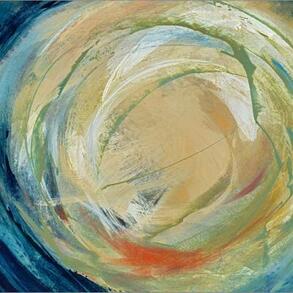Dunedin Consort Messiah Queen's Hall Edinburgh 20th Deccember 2023 Review
Please note that unless requested by performers/pr/venues that this website no longer uses the "star rating" system on reviews.
Dunedin Consort’s Handel Messiah at the Queen’s Hall this evening was obviously proving as popular now as it has been with audiences for almost 300 years as there was scarcely a seat left in the venue.
Written in 1741 and first performed in Dublin in 1743, and a year later in London, this oratorio with music by Handel and libretto by Charles Jennens somehow has that elusive ingredient that allows it to cross over all faiths and all sections of society, somehow it touches a space in many of us that we maybe do not recognise is even there ourselves whether we be believers or not.
By the time Handel wrote this music he had a vast wealth of experience behind him writing operas and many other works and this shows everywhere as the skill to unify the different texts and scenes of this work and keep them always moving forward whilst creating light, shade, emotions and colours with his music is remarkable.
I have seen this work performed more than a few times before, but it has always been with a full scale orchestra and a large choir and while there is no doubting the sheer power that a performance like this can bring to Messiah, it was illuminating to see this work performed by Dunedin Consort tonight in a far smaller instrumental and vocal arrangement, far closer to how Handel wrote it (although he did leave room for musical expansion) and how the original audiences would have heard it.
With direction by John Butt (also on harpsichord), Dunedin Consort, four lead vocalists - Anna Dennis (soprano), Bethany Horak-Hallett (mezzo-soprano), Anthony Gregory (tenor), Matthew Brook (baritone) - and a choir of 12 (which also included lead vocalists), and the always special acoustics of the Queen’s Hall itself, this proved to be the perfect combination for Handel’s Messiah to be revealed as the masterpiece that it truly is.
Like all works that survive the passing of time, there are always deeper layers to be explored, and the back to the basics of the original concept of Messiah tonight somehow allowed so many of the often very subtle moments within this work to shine through and the difference in text, tones and emotions between the Old and New Testaments became more obvious as we all followed this story of prophesy through to its fulfilment and ultimate conclusion. Remarkably for such a large scale religious work, Christ and Jesus are almost never mentioned leaving the work to stand on its own libretto and music alone.
For any musician, Messiah has everything that Handel had to offer in his vast repertoire of musical knowledge and diversity and for the lead vocalists this is an equally demanding work, particularly when they are also in the chorus, and the audience applause at the end of this performance was rightly deserved.
Review by Tom King © 2023
www.artsreviewsedinburgh.com
Written in 1741 and first performed in Dublin in 1743, and a year later in London, this oratorio with music by Handel and libretto by Charles Jennens somehow has that elusive ingredient that allows it to cross over all faiths and all sections of society, somehow it touches a space in many of us that we maybe do not recognise is even there ourselves whether we be believers or not.
By the time Handel wrote this music he had a vast wealth of experience behind him writing operas and many other works and this shows everywhere as the skill to unify the different texts and scenes of this work and keep them always moving forward whilst creating light, shade, emotions and colours with his music is remarkable.
I have seen this work performed more than a few times before, but it has always been with a full scale orchestra and a large choir and while there is no doubting the sheer power that a performance like this can bring to Messiah, it was illuminating to see this work performed by Dunedin Consort tonight in a far smaller instrumental and vocal arrangement, far closer to how Handel wrote it (although he did leave room for musical expansion) and how the original audiences would have heard it.
With direction by John Butt (also on harpsichord), Dunedin Consort, four lead vocalists - Anna Dennis (soprano), Bethany Horak-Hallett (mezzo-soprano), Anthony Gregory (tenor), Matthew Brook (baritone) - and a choir of 12 (which also included lead vocalists), and the always special acoustics of the Queen’s Hall itself, this proved to be the perfect combination for Handel’s Messiah to be revealed as the masterpiece that it truly is.
Like all works that survive the passing of time, there are always deeper layers to be explored, and the back to the basics of the original concept of Messiah tonight somehow allowed so many of the often very subtle moments within this work to shine through and the difference in text, tones and emotions between the Old and New Testaments became more obvious as we all followed this story of prophesy through to its fulfilment and ultimate conclusion. Remarkably for such a large scale religious work, Christ and Jesus are almost never mentioned leaving the work to stand on its own libretto and music alone.
For any musician, Messiah has everything that Handel had to offer in his vast repertoire of musical knowledge and diversity and for the lead vocalists this is an equally demanding work, particularly when they are also in the chorus, and the audience applause at the end of this performance was rightly deserved.
Review by Tom King © 2023
www.artsreviewsedinburgh.com
Please note that unless requested by performers/pr/venues that this website no longer uses the "star rating" system on reviews.
